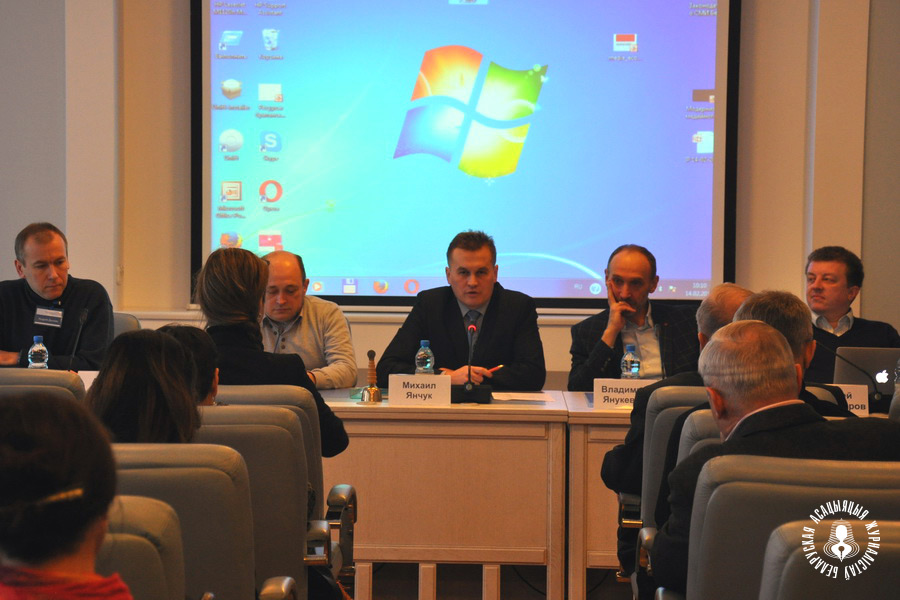Media in Belarus Conference, Day Two
On the conference’ second day, the speakers touched upon the issues of economic hardships, copyright disputes and the specific of online transition of traditional independent mass media. Some remarkable excerpts from the conference can be found below.
Andrei Aliaksandrau, director’ deputy at BelaPAN news agency
The current economic situation leaves much to be desired, while the country is in recession. We observe dominating of the state sector in the media, alongside with great dependence of our economy on Russia.
In recent years, we’ve seen a serious decline in capitalization of the Belarusian media market by around 40 per cent. The market volume is approximately 70 million USD, 18 million of which belongs to online advertising market. The structure of the media market has changed, too: in 2005, print media comprised near 26 per cent, TV – 52 per cent, and the Internet occupied only 1 per cent. In 2016, print mass media comprised only 5 per cent of the whole market, whereas 25 – 26 per cent now belongs to the Internet. And the tendency preserves.
The specific of the Belarusian media space is that the dominant position is taken by large media owners, and some of them are not Belarusian, but Russian. Also, state-run mass media have recently started to promote themselves online.
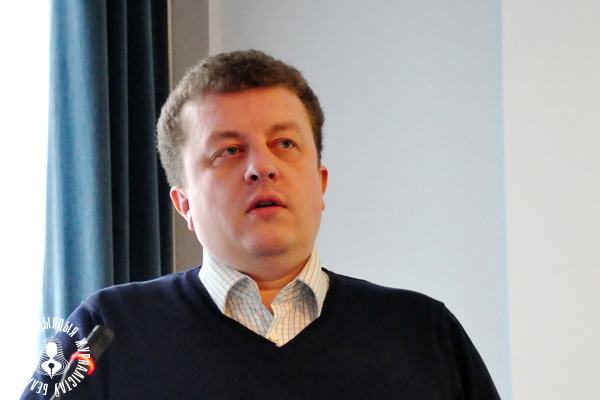
One should bear in mind the political aspect influencing the media market: state-run mass media enjoy support in the form of subsidies from the state budget. Also, many non-state mass media have been banished from the state system of distribution of print press.
Some other issues: compulsory subscription of budget workers to state newspapers, pressure on advertizers, barriers for entry into market (registration, allocation of frequencies, investments). And one more problem to be mentioned is lack of journalists’ access to information.
However, not everything is as bad as it looks: independent media have some opportunities to take, like new technologies, new platforms for work, new formats of advertising which help draw earnings even for small websites. Advertisers’ approaches have changed, too: they wish to target specific audiences.
In my view, Belarusian media are still keen on production of content. Meanwhile, it is essential to learn to sell your content professionally.
As for BelaPAN, last year it focused on selling news, whereas now we aim to increase advertising revenues. A new website version has been launched with more ads. The step has increased website traffic by around 40 per cent within several months, now we have up to 1 million unique users a month. We are also actively promoting our pages on Facebook, Twitter and YouTube.
Pauliyuk Bykouski, media expert
The change in media consumption worries not only non-state media businesses, but the government, too. For example, the Minister of Information has spoken about a drop in circulations of print media.

One of present-day tendencies is that the role of websites has shifted to media presence on different platforms. The meaning of the main page has even changed, because now people come from social nets and search platforms to read a particular piece of news. The main currency is audience’s attention: there is a real fight for audiences with mobile devices where every person is now a kiosk with its own content and ads.
Uladzimir Yanukevich, Intex-press, Baranavichy
By the example of the media that make part of the Association of Publishers of Regional Press, I can say that the chief problem is unequal standing of independent media against state-run media in the distribution and pricing systems.
Teachers are obliged to subscribe to this or that outlet and to bring confirmation documents from the post-office; the fact of subscription is encouraged by bonuses, for instance, by an extra day of summer vacations.
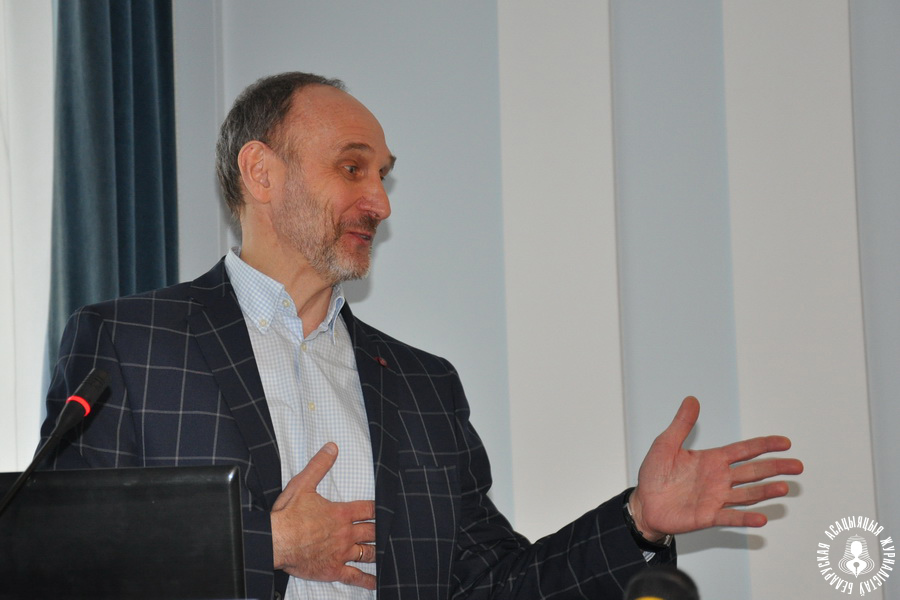
When Korona hypermarket appeared in Baranavichy, we concluded an agreement and sold around 200 to 300 copies on the first day. But then, the shop managers honed me and told they had been banned to coooperate with us. Moreover, they named particularly those persons from the city executive committee who banned this.
So, our main demand and viewpoint now: all media should have equal conditions. Nobody will be able to compete with us then, because we make the most interesting product at our regional market.
Andrei Dynko, chief editor of Nasha Niva
Nasha Niva gets over 7 million views a month. We cut down on paper newspaper as a chance to promote the outlet online.
I do not see serious feedback from social nets; the very publications on social nets do not bring us earnings. Social nets and messengers should work to attract the audience to our website. Most Belarusian outlets cannot afford six persons to administer social accounts.

Nasha Niva was one of the first social-political newspapers who tried to raise funds from crowdfunding. We expect to raise around 10 to 11 thousand euro within a year. But I don’t think that this is a serious sum for an editorial office to exist.
I like the model of Denmark where all large outlets agreed at a time to switch on a paywall. I assume we’ve got to create a solidary paywall. Of course, such paid-for subscription will be possible with sufficient level of development of electronic payment systems, so here we depend a bit on the state.
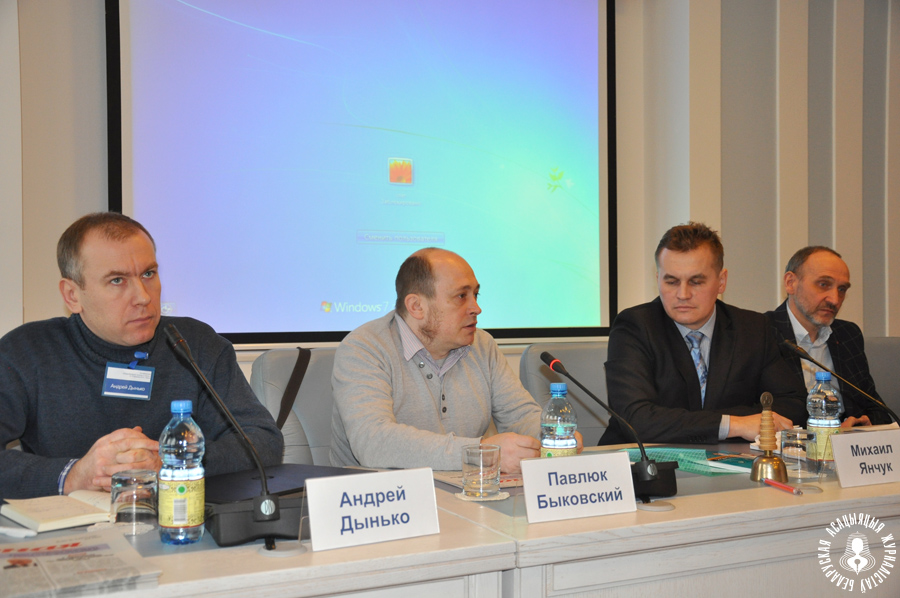
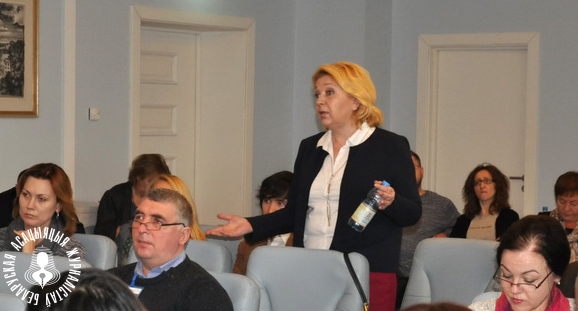
International Conference on Media Challenges Held in Minsk
 @bajmedia
@bajmedia

